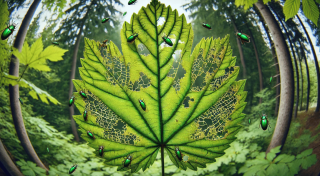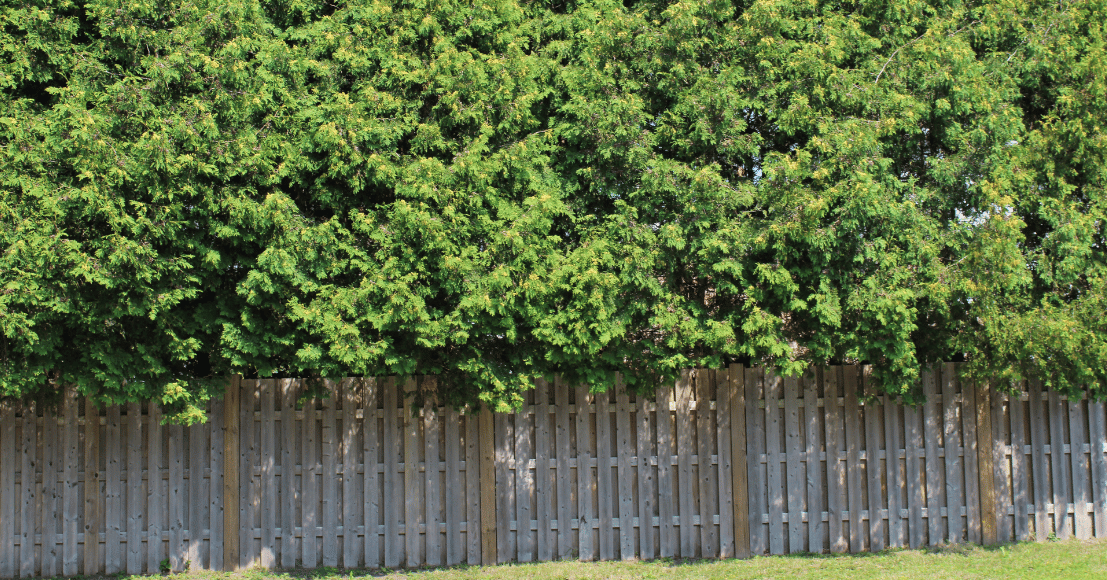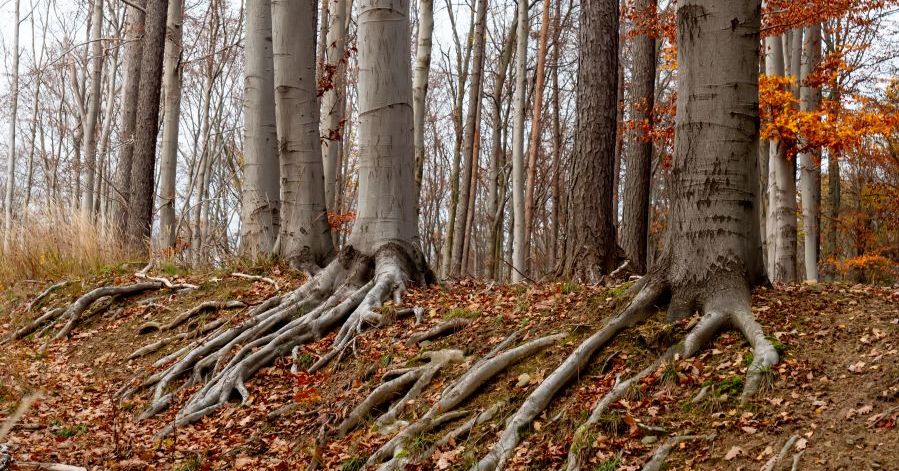Japanese beetles can cause serious harm to your trees. These pests chew through leaves, leaving them skeletonized. Knowing how to identify, manage, and protect your trees from Japanese beetle damage is essential. Here’s what you need to know.
Why Japanese Beetles Are Invasive
Japanese beetles (Popillia japonica) are invasive pests in North America. Originally from Japan, they were first discovered in the United States in the early 20th century. Since then, they have spread rapidly, causing extensive damage to plants, trees, and crops.
These beetles are invasive because they have no natural predators in the U.S. This allows their population to grow unchecked. In Japan, native predators and diseases keep the beetle population under control. These in the U.S. are necessary for the beetles to thrive and damage a wide variety of plants.
How to Detect Japanese Beetles
Detecting Japanese beetles early is critical to minimizing damage. These beetles are easily recognizable by their metallic green bodies and copper-colored wings. They are about half an inch long and active during the summer months.
Look for signs of leaf damage. Japanese beetles typically feed on the upper parts of trees, targeting leaves. Affected leaves will appear skeletonized, with only the veins remaining. If you notice this type of damage, inspect your tree for adult beetles. They often feed in groups, making them easy to spot.
In addition to adult beetles, you should be aware of grubs, the larval stage of Japanese beetles. These white, C-shaped grubs live underground and feed on the roots of grass and plants. A lawn that feels spongy or has brown patches may indicate the presence of grubs.
How Do You Get Rid of Japanese Beetles Permanently?
Unfortunately, permanently getting rid of Japanese beetles is challenging. However, several methods can be used to manage their population and protect your trees.
1. Handpicking
One of the simplest ways to control Japanese beetles is by handpicking them off your trees. Early in the morning, when the beetles are sluggish, knock them into a bucket of soapy water to kill them. While time-consuming, this method can be adequate for small infestations.
2. Neem Oil
Neem oil is a natural pesticide that can deter Japanese beetles. When sprayed on trees, it disrupts the beetles’ feeding and reproduction, reducing their numbers over time. Be sure to apply neem oil consistently for the best results.
3. Milky Spore
Milky spore is a bacteria that explicitly targets Japanese beetle grubs. Applying milky spore to your lawn can reduce the grub population over time. However, establishing itself in the soil takes a few years, so this is a long-term solution.
4. Traps
Japanese beetle traps are available, but they should be used with caution. While these traps attract beetles, they can also draw more beetles to your yard. If you choose to use traps, place them far away from your trees and other plants you want to protect.
5. Chemical Insecticides
Chemical insecticides may be necessary for severe infestations. Products containing carbaryl, pyrethrin, or imidacloprid can kill Japanese beetles on contact. Always follow the instructions carefully and avoid using these chemicals during the hottest part of the day to prevent harming beneficial insects.
Will Trees Recover from Japanese Beetles?
Yes, in many cases, trees can recover from Japanese beetle damage. The extent of recovery depends on the severity of the infestation and the tree's overall health.
If the beetles have only skeletonized a few leaves, the tree will likely survive and produce new growth the following year. However, repeated or severe defoliation can weaken the tree, making it more susceptible to other pests and diseases.
Provide your trees with proper care to help them recover. Ensure they receive enough water, especially during dry periods, and consider applying a slow-release fertilizer to encourage new growth. Prune any damaged branches and monitor the tree for signs of other issues.
Effective Japanese Beetle Control
The best way to protect your trees from Japanese beetles is to take a proactive approach. Here are some tips for effective control:
1. Maintain Tree Health
Healthy trees are better equipped to withstand beetle damage. Make sure your trees are watered, fertilized, and pruned regularly. This will help them recover more quickly if they are affected by beetles.
2. Monitor for Early Signs
Periodically inspect your trees for signs of Japanese beetles, especially during the summer months when they are most active. Early detection can prevent severe damage.
3. Use Preventative Measures
If you’ve had issues with Japanese beetles in the past, consider using preventative measures like neem oil or milky spore to reduce the population. You can also apply insecticide treatments before beetles emerge to minimize damage.
4. Seek Professional Help
If you’re dealing with a large infestation or if your trees have been severely damaged, it’s best to contact a professional. Certified arborists can assess the health of your trees and recommend appropriate treatments. At Strobert Tree Services, we offer a free health assessment for trees in Delaware, PA, and New Jersey. Our experts can help you develop a plan to protect your trees from Japanese beetles and other pests.
Contact Strobert Tree Services
Japanese beetles can significantly threaten your trees, but with the proper care and management, you can protect your landscape. If you’re concerned about Japanese beetle tree damage, don’t hesitate to reach out to Strobert Tree Services. Our certified arborists provide expert advice and treatment options to keep your trees healthy and pest-free.
We offer a free health assessment for trees in Delaware, PA, and New Jersey. Contact us today to schedule your assessment and ensure your trees are protected from invasive pests like Japanese beetles.
By staying vigilant and taking action early, you can minimize the damage caused by Japanese beetles and keep your trees thriving for years.











